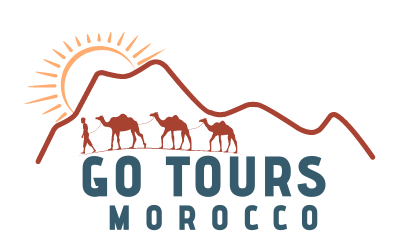Environment & Local Customs
ENVIRONMENT & LOCAL CUSTOMS
Respect:
Respecting our differences contributes to the success of the journey and facilitates interaction with the accompanying team and the local population in the areas visited. It is also important to respect the environment and natural resources of the areas traveled.
Dress Code:
When traveling, whether in cities, villages, or during hikes, it is essential to dress appropriately according to the country’s culture. This promotes interaction with the local people and also helps protect against heat, sun, wind, and insects.
Clothing that is too short, revealing, or tight is often perceived negatively and may offend the local populations and the local teams accompanying you. Loose-fitting clothing is more comfortable for hiking.
The criteria for what is considered appropriate or not vary from culture to culture; they are not always easy to decipher. For example, in sub-Saharan Africa, women may have bare shoulders, but their knees are always covered. In any case, wearing clean and non-torn clothes is a sign of respect towards the local people you encounter.
In cities, the clothing worn by the urban population may not be the same as that worn by people in mountainous and rural areas.
Avoid affectionate gestures between couples or fiancés, especially in villages and in front of the accompanying team.
During the Ramadan period, respect the fasting period of the local population: avoid excessive eating, drinking, or smoking.
Staying with Locals:
During hikes, we often establish friendships with the accompanying team and the local populations in the areas we traverse. Sometimes, you may be invited to have tea, eat, or spend the night. In such cases, it is important to know the guidelines for entering their homes:
- Take off your shoes before entering the room.
- Do not enter annex rooms without being invited, such as the kitchen.
- Wash your hands before meals, which are often shared from the same dish.
- Avoid affectionate gestures between couples or fiancés.
- Ask for permission before taking photos and do not take them secretly.
Respect within the Group:
Respecting our differences fosters tolerance and facilitates exchange. Our local team strives to satisfy you, make you happy, and help you discover not only the landscape but also the way of life of the people living in the regions we traverse—their traditions, customs, and everyday life. You will experience genuine moments of sharing with the people accompanying you, every day during the hike or in the evening under the large tent called the “mess tent” or around the campfire.
Here are some important guidelines to follow during the trek:
- Respect the departure and meal times announced by the guide.
- Set up and dismantle your individual tent on time to avoid disrupting the packing.
- Speak softly when everyone returns to their tents in the evening to rest and sleep.
For those who enjoy tranquility and solitude, they will have the opportunity to enjoy moments of isolation for reading, writing, drawing, contemplating, etc. At noon, during the picnic, or in the late afternoon upon reaching the bivouac.
Walking also allows you to escape alone with your thoughts, dreams, etc. In those moments, you will feel far from being overwhelmed by the group.
Environment:
The Moroccan mountains, like its desert, are preserved areas that are beginning to open up to the outside world. In order to take into account the sensitivity of the inhabitants of the high valleys and the mountain and desert environments, it is important to observe a number of rules:
- Respect the socio-cultural traditions of the local population.
- Respect the environment and the heritage.
- Respect the cultures and the water from sources (only fallen wood can be used for fire).
- Burn biodegradable waste on-site and bury the residues properly.
- Collect non-biodegradable waste in a bag to be disposed of at the designated collection points.
It is not advisable to distribute candies, pens, and other items to children in the villages. If you wish to leave something, do so through an intermediary such as your guide or an adult from the village, such as a teacher.
Our Commitments:
Our team is committed to:
- Fair and environmentally friendly tourism that respects the natural environment and the local population in the areas we visit.
- Ensuring the quality of the sites, routes, and bivouac locations.
- Implementing strict standards to respect the environment, traditions, and customs of the local population.
- Implementing environmental protection measures, such as water conservation (showering, laundry), avoiding food waste, and proper waste management.
Gifts:
It is customary to give an envelope with a monetary gift to the people who have accompanied you at the end of the hike. Each individual is free to react as they wish. Sometimes, a pair of shoes, a jacket, or a warm fleece can be as appreciated as a tip. Some individuals with fewer means are happy to receive a small amount of money. Just remember to prepare separate envelopes for each person. Tipping is customary and supplements the modest income of the staff.
Shopping:
Morocco is a country that has preserved its craftsmanship, including embroidery, wooden furniture, carpets, ceramics, ironwork, jewelry, and various spices. It is important to know that bargaining is part of the tradition. Once you have agreed on a price, it is important to honor your word.
It is important to obtain consent from the locals before taking their photos. It is also important to be willing to forgo a photo if payment is demanded to avoid exploitative situations. It is not recommended to take photos secretly.

